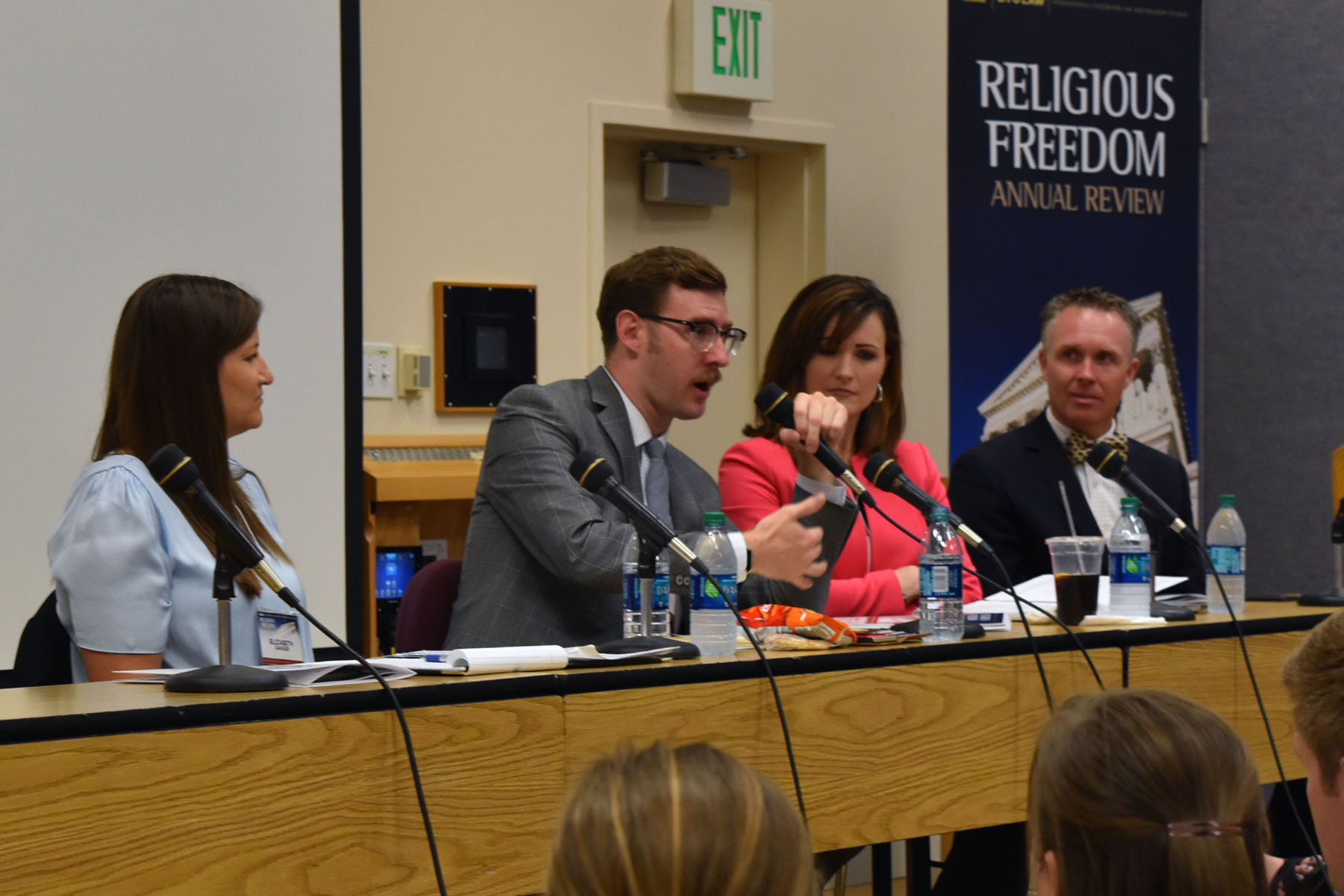Workshop: How to Reach Out and Find Common Ground with LGBTQ Communities – Isom, Jenkins, & Darger

By Athelia Graham, 2017 ICLRS Student Fellow, with contributions by Kyle Harvey, 2017 ICLRS Student Fellow
This session was moderated by Steven M. Sandberg a member of the Office of General Counsel of Brigham Young University. The participating panelists were Ally Isom, Director of Institutional Messaging for the LDS Church; Addison D. Jenkins, current BYU student and former president of Understanding Same Gender Attraction (USGA), a student run organization at BYU; and Liz Darger, Associate Athletic Director/Senior Woman Administrator (SWA) at Brigham Young University.
Ally Isom, Director of Institutional Messaging for The Church of Jesus Christ of Latter-day Saints, emphasizes the importance of language as being “the key to our understanding.” In her efforts to restructure mormonandgay.lds.org – a new website initiative by the LDS church that hopes to remove divisions between God’s children, whatever their sexual identification may be, she highlighted the significance of the confusion around various terminology and labels and the importance of asking about words and their meanings. This led to changes in the language on the website to be more inclusive rather than divisive, and helped the Church communicate its message more clearly: “to help God’s children remain in the light of Christ as they navigate their individual journey.” Isom reiterates the value of engaging in community outreach to engage in challenging conversations about diverse perspectives and to collect personal narratives, studies and data to improve understanding between the Church and the LGBTQ community. She finishes by reminding us that we are all “stewards of this conversation and the greater context that we are having” and that we must see others not as enemies but as children of God. She expresses her strong belief that it is “through this community outreach where we manifest the very discipleship that we have covenanted to exhibit.”
Addison D. Jenkins is an openly gay student at BYU. He was also the president of the USGA organization, a group of students and faculty on campus that help to improve the experiences of LGBTQ students at BYU. When he originally began his work in 2015, he felt that some bridges had been burned regarding relationships with BYU administrators. But as he has continued the dialogue, he has been “pleasantly surprised at the amount of warmth and welcoming and openness and the opportunities for dialogue and progress” that has happened. He recounts how he lived much of his youth lying about who he was and ignoring what people said that was harmful to him and other LGBTQ people. Jenkins attests to efficacy of open, civil, and honest dialogues. In the question and answer session he emphasized the importance of showing concern and a sincere desire to understand, value, and respect each individual’s experiences and perspectives.
Liz Darger, Associate Athletic Director at BYU began by sharing a very powerful experience she had on assignment representing BYU at an NCAA think tank promoting conversations between faith-based institutions and the LGBTQ advocates to find common ground. She sums up her message in a moment where she was verbally attacked during one of the sessions. In that moment, two women from “the opposite side of the aisle” reached out and became her ally. Darger emphasizes the importance of becoming allies with LGBTQ students at BYU by speaking up for them at times when they cannot speak for themselves and by checking in on them. The friendships made at that conference have led to some amazing experiences and continued conversations and dialogue increasing understanding and finding important common ground on which to stand together and move forward.
After the remarks by each presenter, a short question-and-answer session followed. Of the questions asked, one particular comment led to Addison explaining how misunderstandings surrounding LGBTQ students can be solved through one simple action. In his words: “please just ask.”